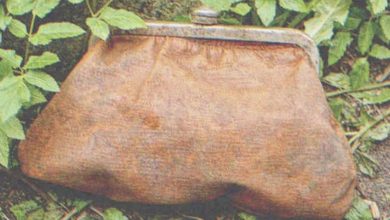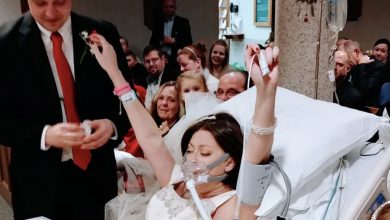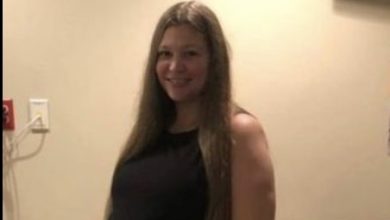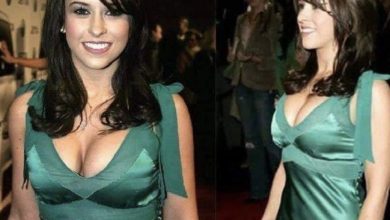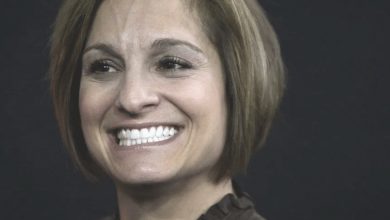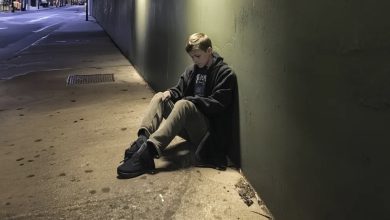He tried to win with a lie but the truth came back to us and I found love honesty and a new home
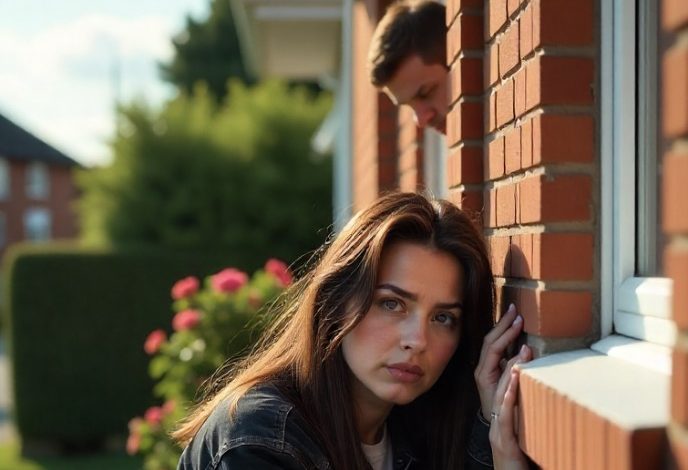
“I’ll take the gift in myself—please wait outside,” my husband said as we pulled up for his mother’s birthday. He grabbed the bag, stepped out, and headed to the door. I followed a moment later, reached the steps, and—when I listened closely—everything changed.
Our ten-year marriage had been fading for a while, like a photo left in a sunny window. The colors that once felt bright had turned pale, and the edges of our life together felt brittle. I’m Eleanor, a freelance interior designer. My husband, Mark, manages crews for a construction company. We own a small house, we share a cheerful eight-year-old son named Leo, and, from the outside, it probably looked like we were doing fine. But at home the quiet between us had grown so heavy that even simple questions landed with a thud. We went through the motions: school lunches, takeout on Fridays, weekend chores. The rhythm stayed the same, but the music was gone.
The warning bell finally rang on a clear Saturday morning—Valerie’s birthday. Valerie is Mark’s mother. She loves roses, keeps her front walk spotless, and never forgets a birthday. Mark was edgy from the moment he woke up.
“We need to leave now,” he said, keys in hand.
“What about Leo?” I asked. “He’s been practicing a short poem for Grandma all week. And I picked up the food processor she wanted.”
“Leo can see her later,” he snapped. “She isn’t feeling well.”
His tone was sharp in our quiet kitchen. I didn’t want a fight with Leo listening from the hall, so I let it go. We drove across town with the gift on the back seat and a silence that felt like a wall between us.
Valerie’s house looked perfect, as always—green lawn, bright flowers, the window boxes she fussed over every spring. Mark parked at the curb, turned off the engine, and looked at me like a man delivering instructions at a job site.
“Here’s the plan,” he said. “I’ll go in, give Mom the present from both of us, and you’ll wait in the car.”
I blinked. “Wait in the car? Why? Is she contagious?”
“Don’t be difficult, Eleanor,” he said, jaw tight. “Mom said she isn’t up for guests. I can’t skip her birthday, but there’s no reason for you to go in. Please just stay put.”
A cold knot formed in my stomach. It made no sense, but I also didn’t want a scene in front of his mother’s house. “Fine,” I said.
He took the bag and disappeared inside. The car felt like a box with the lid on. After a few minutes I opened the door to breathe. I followed the path toward the side yard where Valerie keeps her prize roses. The window above the new flowerbed was cracked open. That’s when I heard voices, clear as if I were standing in the kitchen.
“Are you serious, Mark?” Valerie asked, stunned. “I can’t believe it. Eleanor has always been good to you. Are you sure you’re not mistaken?”
“I wish I were, Mom. I’m absolutely sure,” Mark said. His voice carried a practiced sadness that chilled me. “Ten years of marriage changes a person. I was crushed when I found out she had someone else.”
The ground seemed to tilt.
“I’ve been thinking about divorce,” he went on, dropping his voice as if he were sharing state secrets. “That’s why I didn’t bring her in today. I couldn’t stand here and pretend everything was fine.”
A cup clicked hard against a saucer. “Oh, my goodness,” Valerie breathed. “What a nightmare.”
I stood rooted to the spot. I wanted to burst in and shout the truth, but another feeling rose up—colder and clearer. If I confronted him now, he’d deny it, twist it, and call me crazy for listening at a window. So I stepped back, walked around the corner, and slid into the front seat just as Mark came out, his face smooth and casual. He waved at me like nothing was wrong, got in, and turned the key.
He hummed with the radio on the way home. I stared out the window and replayed his lie again and again. My mind began to assemble the pieces: his strange mood, his sudden plan, the way he’d left Leo at home. Something bigger was moving under the surface.
For the next week I played my part. I kept the house running, took Leo to school, met clients, and answered Mark with short, polite sentences. At night I lay awake while he snored softly beside me and asked myself the same question: Why tell his mother that I was unfaithful? The lie was not random—it was targeted. It was designed to hit hard.
The answer came from a place I didn’t expect. I met a new client named Dr. Alex Sterling. He was a gentle, steady man with kind eyes who wanted a mural in his daughter’s bedroom. Over sketches and paint chips, small talk turned into real talk. He told me he was a widower and that he was raising his eight-year-old, Lucy, on his own. I told him about Leo and how the kids at school sometimes teased him because he wasn’t from a wealthy family.
“That sounds familiar,” Alex said with a sigh. “Lucy deals with that too.”
Then he asked where we lived. When I told him, he paused. “That’s a coincidence,” he said. “I’m an oncologist at the community hospital a few towns over. I have a patient from your area who loves to talk about her garden. Valerie Carter.”
The name hit me like a cough of cold air. “That’s my mother-in-law,” I said.
Alex’s face softened. “I’m sorry. I wouldn’t normally share details, but since you’re family… her recent tests haven’t been good,” he said gently. “Our estimate is less than a year.”
The room swayed for a second, and then steadied. He kept talking. What he said next unlocked the whole situation.
“She’s very brave,” he said. “A notary came to the hospital last week so she could update her will. She told me she wanted her house to go to you, her daughter-in-law. She said you’ve been more of a daughter to her than her own son has been a son.”
Her house. To me.
The pieces clicked into place so neatly that I felt sick. Mark must have found out. By telling his mother I had cheated, he could push her to change her mind. If she believed I had betrayed her son, she would surely remove me from the will and leave the property to him. His lie wasn’t a burst of anger; it was a plan.
That evening I drove to Valerie’s. I rang the bell and pressed the intercom.
“It’s me,” I said. “Eleanor. Please, can we talk?”
Her voice came through, brittle and cold. “I don’t have anything to say to you. Please leave.”
The speaker clicked off. I stood there a long moment with my hands shaking. As I walked back to my car, I passed a bistro downtown and stopped short. Through the window I saw Mark at a table with a young woman I didn’t recognize. He was leaning forward, holding her hand, smiling in a way I hadn’t seen in months. The final piece slid into place. He wasn’t just lying about me; he was already involved with someone else.
When he came home, I was waiting in the living room with a single lamp on.
“You’re up late,” he said, surprised.
“I saw you tonight,” I said quietly. “At the bistro. With her.”
Color drained from his face. “Eleanor, it’s not—”
“Don’t,” I said, standing. “And don’t bother denying what you told Valerie. I know about the will. You wanted the house. That’s what all of this is about.”
He stared at me. For a second I thought he might apologize. Instead he blurted, “That house should be mine. It’s my family home. I did what I had to do.”
“No,” I said. “You did what a greedy man does. You used your mother’s love, and you used her illness, to hurt me. We’re done.”
I packed a bag for me and Leo. At the door he called after me, “Go ahead and leave. You’ll get nothing in the divorce. And when Mom passes, I’ll get the house. I’ll still win.”
I didn’t know where to go. My hands shook so hard I could barely hold my phone. I called the one person who had looked me in the eye and told me the truth without judgment.
“Alex? I’m sorry to call so late,” I said, voice breaking. “My marriage just blew up. Leo and I— we don’t have anywhere to stay tonight.”
“You do now,” he said without hesitation. “Come over. I’ll make up the guest room. Stay as long as you need.”
Alex’s house felt warm the moment we stepped inside. He made tea; Leo and Lucy sat at the kitchen table and shyly compared favorite movies. In the days that followed, the kids discovered they had a lot in common, including two bullies at school who loved to pick on anyone smaller. After a rough day, Leo borrowed my phone, stood up for Lucy, and filmed the boys shoving another child. He posted the video with the help of a teacher. It spread fast. Parents demanded answers. The school finally acted, and the principal who had ignored complaints for years was removed. My son found his voice—and helped his new friend find hers too. I cried happy tears in the hallway where no one could see me.
The divorce moved quickly because Mark didn’t fight it. He was too busy waiting for his “win.” He bragged to a mutual friend that he would have the house within a year, that he and his girlfriend were planning trips abroad, that he was done with “drama.”
In the meantime, something gentle grew between me and Alex. We cleaned up dinner together. We helped with homework. We talked late on the back steps after the kids were in bed. He told me about his wife who had died three years earlier, and how he thought he’d never feel anything warm again. I told him how small Mark had made me feel even before the lies. One evening he took my hand and said, very simply, “I’m falling in love with you.” I felt the truth rise and meet his words. “Me too,” I said.
A few weeks later Alex came home from the hospital with an expression I couldn’t read—half wonder, half disbelief.
“I have news,” he said, pulling me into the light near the window. “Our lab caught a mistake. A big one. Two files were mixed up. Valerie’s results were swapped with another patient’s.” He squeezed my hands. “Eleanor… your mother-in-law is not dying. Her condition is benign. She’s going to be alright.”
I sat down hard and laughed and cried at the same time. Relief washed through me like heat. Then a second thought cooled it: Mark’s plan had been built on the idea that time was short. Now it wasn’t. He had burned our family bridge for a prize that wasn’t coming.
Word reached him quickly. His girlfriend, who had enjoyed expensive dinners and long talks about “the future,” realized there would be no house, no windfall, and no trips. She drifted off toward someone with deeper pockets. Mark stopped answering texts from mutual friends. The man who had called himself a winner suddenly had nothing in his hand.
A week later he showed up at Alex’s front door, looking like he hadn’t slept.
“Eleanor, we need to talk,” he said, voice raw. “I made a terrible mistake. I was under pressure. I can change. Let’s try again—for Leo.”
I stood in the doorway with Alex at my shoulder. I searched Mark’s face for any sign of real regret, the kind that changes a person. I didn’t see it. I saw a familiar hunger and a new panic.
“It’s too late,” I said gently. “There’s nothing left to go back to.”
He opened his mouth to argue, and I added, “I wanted you to hear this from me. I’m getting married.”
His eyes widened.
“And we’re expecting a baby,” I said, resting a hand on my stomach. The joy of saying it out loud filled the space between us.
Mark’s shoulders sagged. For once he didn’t have a speech ready. He turned and walked down the steps without another word.
I watched him go, then closed the door and leaned into Alex. Upstairs, two kids were arguing cheerfully over a board game. In the kitchen a pot simmered. Life felt steady again.
Weeks later, Valerie invited me over. She opened the door and pulled me into a hug that lasted a long time. “I’m sorry for believing him,” she whispered. “I should have known better. I’m so grateful you’re alright.”
“I’m grateful you’re alright,” I said, and meant it. We walked through her garden and talked about roses. She told me she had changed her will again—not out of anger, but because she wanted choices made in love, not fear. She kept her home in her name and added a note about why: “So the people I love visit because they want to, not because of what they hope to inherit.” It sounded exactly like her.
The day we married, Leo and Lucy stood with flowers in their hands, beaming. The ceremony was simple. At the small celebration afterward, Alex raised a glass and said, “To second chances—and to telling the truth even when it’s hard.”
I squeezed his fingers. Later, while we cleaned up, Leo tugged my sleeve. “Mom,” he said, glancing at Alex, “is it okay if I call him Dad sometimes?”
“Yes,” I said, my voice thick. “It’s more than okay.”
Our life is not perfect. The bistro sometimes messes up an order. The kids still argue about silly things. The baby kicks at three in the morning and doesn’t care if I’m tired. But the house is full of laughter and soft footsteps and the sound of people telling the truth to each other. That is more than enough.
Looking back, I think of the day Mark told me to wait in the car with a gift in my lap. I remember the words I heard through Valerie’s window and the way the ground felt unsteady beneath me. I also remember the quiet choice I made to step back, listen, and learn the truth before speaking. That choice saved me. It saved Leo. It opened a door to a future built on honesty and kindness instead of lies and greed.
When I set a vase of fresh roses on our table, I sometimes picture Valerie pruning hers in the afternoon sun. I picture Leo and Lucy racing their bikes down the sidewalk. I picture the small life growing inside me. And I whisper a thank-you—to the version of me who didn’t burst into that kitchen, to the doctor who told me the truth, to the friend who became my home.
My war began the day I stood under that open window. It ended not with a final shout, but with a quiet life I chose on purpose. And that, more than any house or inheritance, is my victory.

